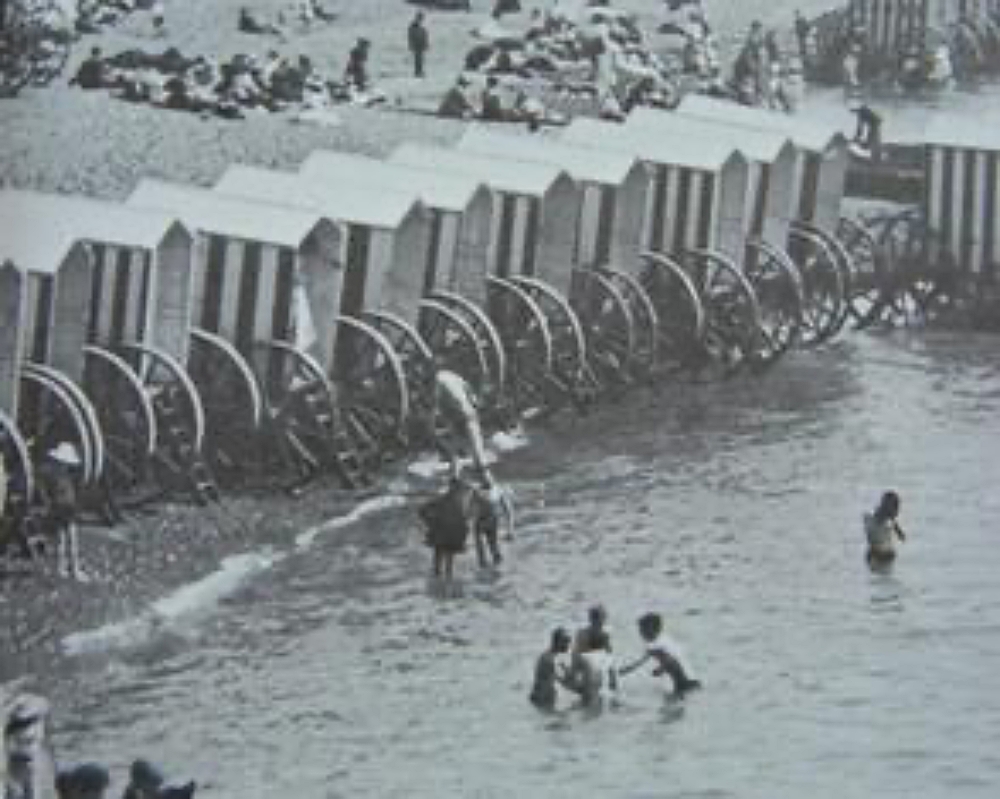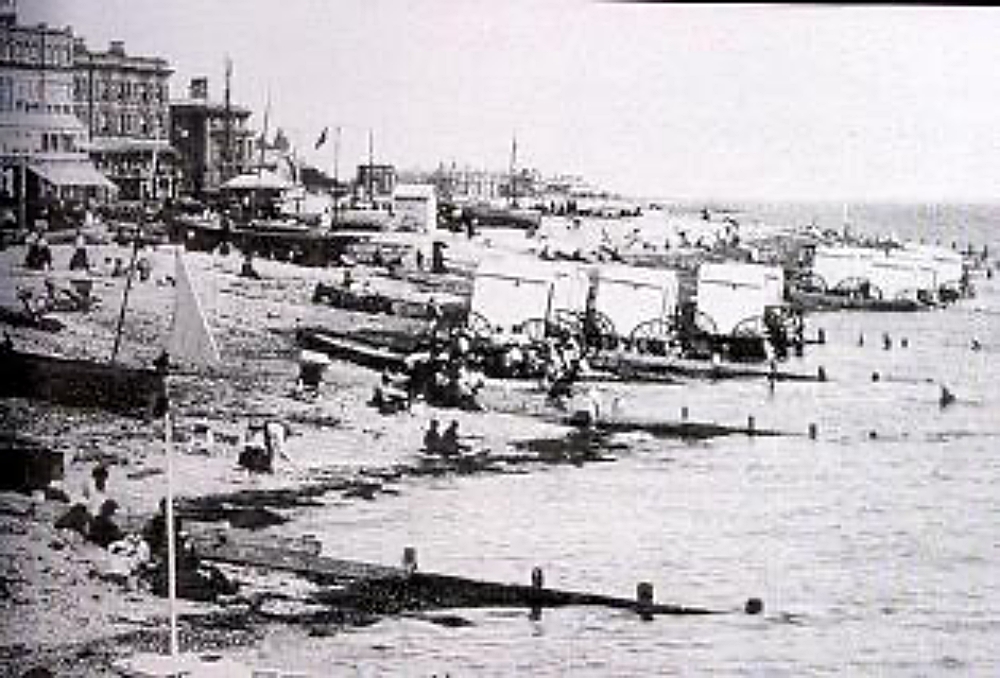“Proper” sea bathing arrives in Worthing
SEA BATHING in Victorian times was a prim and proper pastime but, despite a common misconception, constraints were not confined to the clothing that bathers were “decently” allowed for their tentative dips into the briny. In fact, more upsetting goings-on were perpetrated by the daunting “bathing women,” whose job was to supervise the wheeled bathing machines that modesty demanded should be used by all Victorian ladies venturing down to the water’s edge.

IN 1883, there was an aspect of sea bathing at Worthing provoked the strongest of rebukes from an unexpected source, the eminent British Medical Journal.
That summer, the proud Victorian matrons of Worthing and their elegant young married daughters with offspring, winced when they read the accusations aimed directly at them by the British Medical Journal.
“At the present season a mistaken and mischievous practice is much in vogue,” declared the voice of the medical hierarchy.

“Daily torture is being inflicted on thousands of tender and helpless infants by forcibly plunging their bodies, in spite of shrieks and struggles, into the open sea.
“This cruel and time-honoured process may now be seen in full operation at several seaside resorts. Affectionate mothers hand over their infants to stalwart and impassive bathing women, to be plunged head foremost into the sea, under the absurd notion that the procedure vastly benefits the little ones.
“Day after day, with relentless regularity, very young children and babies are being borne out amidst the waves and subjected to their dreaded ducking, in the firm belief that their trembling bodies, often writhing to the verge of convulsions, are thus made healthy and hardy.
“All experience on the subject and the teachings of all medical authorities on sea bathing, agree in support of the two following rules: namely, that a child under two years of age ought never, under any circumstances, to be bathed in the open sea, and that no one, child or adult, can enter the sea without danger while under the influence of emotional excitement.
“Under two years of age a child’s body is too weak to gain any benefit from the shock of immersion in the open sea. Its nervous and circulating forces are too feeble for that vigorous reaction, without which sea bathing is either useless or hurtful.”
The Medical Journal added: “At any age, the shock of immersion in the sea brings risk of danger and even of death, when the emotions are powerfully excited and especially when the mind and body are dominated by that most depressing of human emotions, fear.
“There is an old seaside notion that babies diligently bathed become fearless on the water as they grow up. The notion is false. It is more probable that many a nervous child has acquired a dread of bathing which no after experience could remove, because it was compelled in fear and trembling to plunge under water.”
After such an admonishment, there is little doubt that the very young vanished from Worthing beach for several seasons.